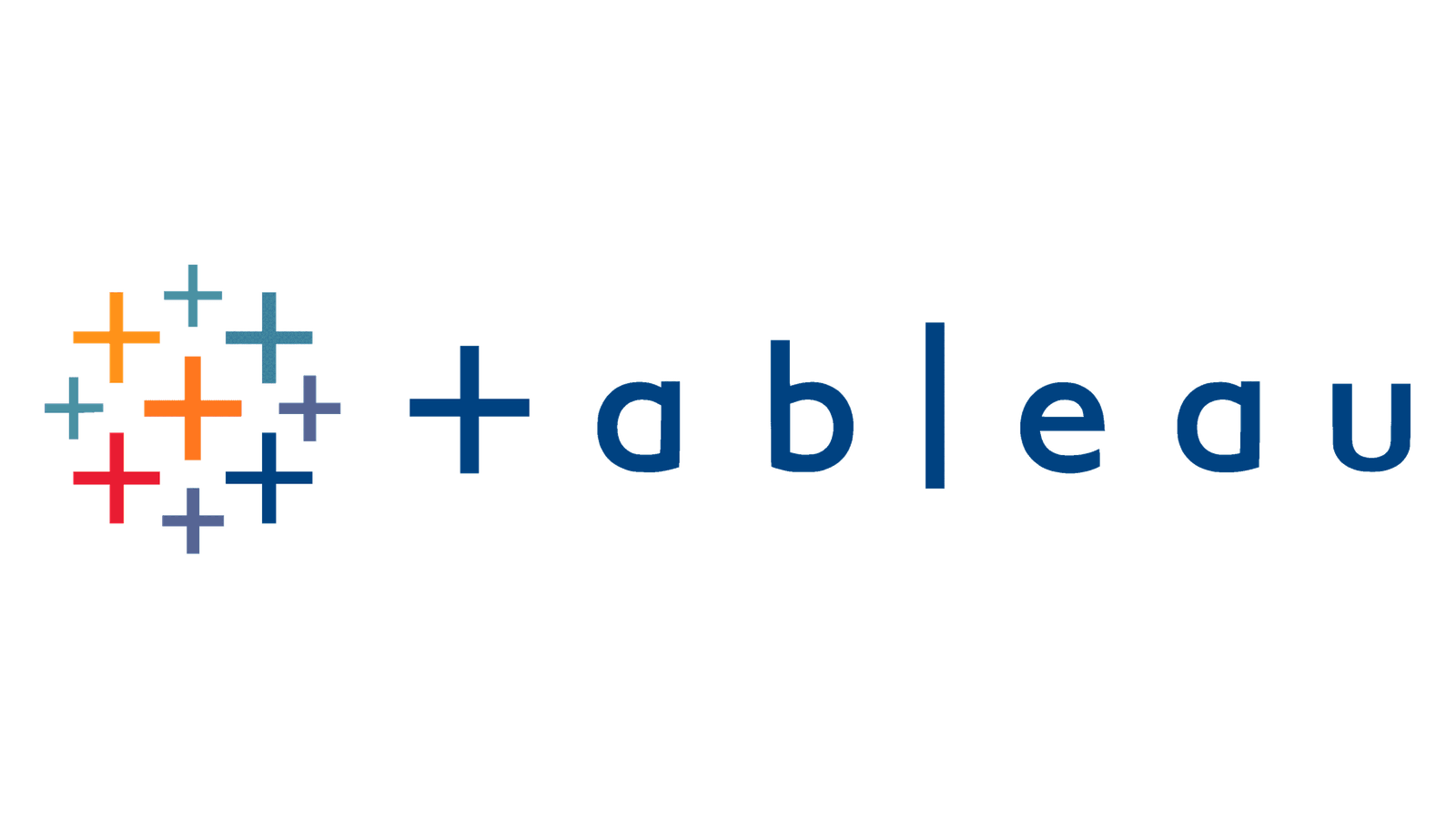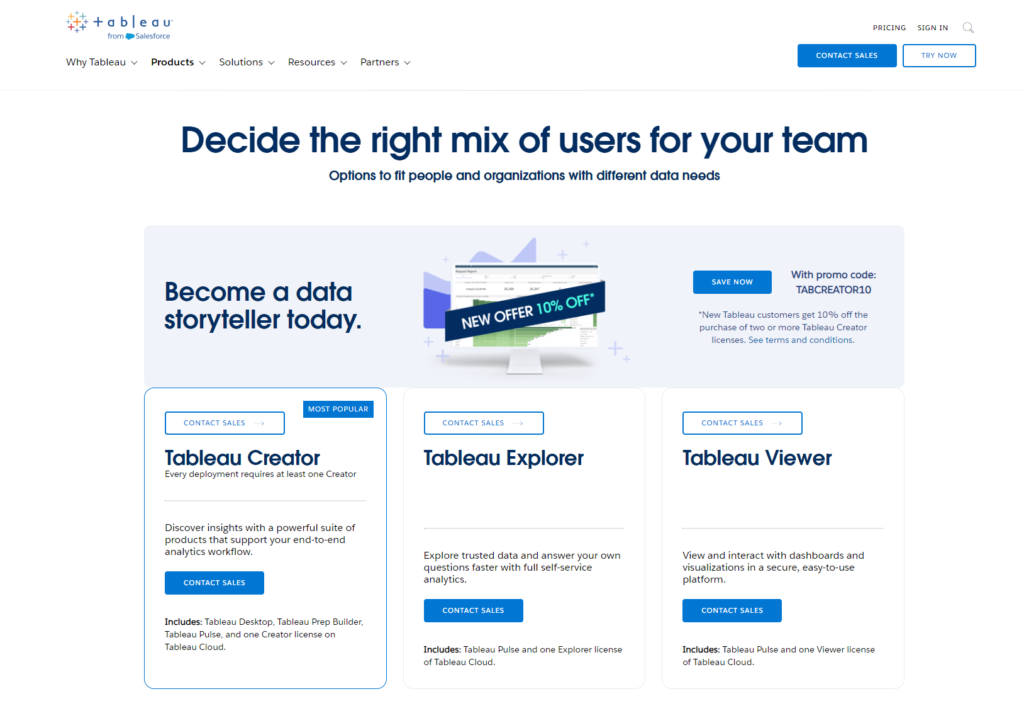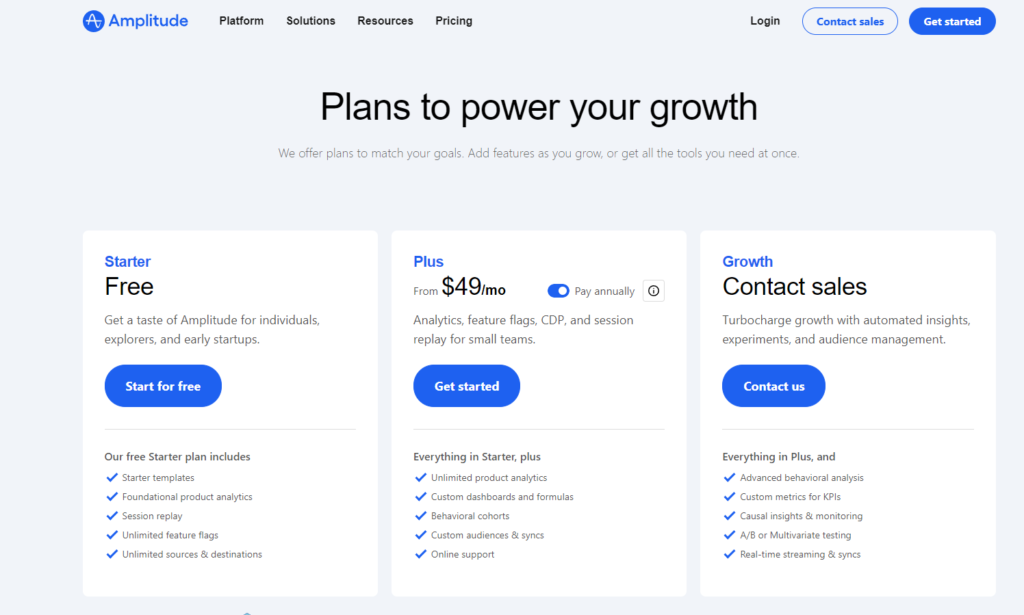In today’s data-driven world, the choice of analytics tool can be a pivotal decision for businesses aiming to navigate the vast seas of data they collect. With so many options available, narrowing down the best fit requires a deep dive into the capabilities, strengths, and weaknesses of top contenders. Among the plethora of analytics tools, two names often come up for their robust features and unique approaches: Tableau and Amplitude. Both platforms offer powerful analytics capabilities, but they cater to different needs and user profiles. In this exploration, we’ll embark on a journey to uncover which tool might be the best fit for your business, starting with an in-depth look at their User Interface and Experience.
Tableau | Amplitude |
|---|---|
| G2 Score – 4.4 out of 5 stars | G2 Score – 4.5 out of 5 stars |
| TrustRadius Score – 8.2/10 | TrustRadius Score – 8.3/10 |
User Interface and Experience
The gateway to harnessing the power of any analytics tool lies in its user interface (UI) and the overall user experience it provides. A well-designed UI not only makes data accessible but turns the complex task of data analysis into a more intuitive and engaging process. Let’s see how Tableau and Amplitude stack up in this crucial area.
Tableau: Intuitive Design for Complex Data Exploration
Tableau is renowned for its intuitive drag-and-drop interface that democratizes data analysis. It allows users of all skill levels to create complex visualizations and dashboards without the need for extensive training in data science. This accessibility is one of Tableau’s strongest suits, making it an attractive option for businesses looking to empower their teams to make data-driven decisions. The platform’s design emphasizes visual analytics, allowing users to interact with their data in a highly visual and intuitive manner. This approach not only makes data analysis more accessible but also encourages deeper exploration and discovery of insights.
Amplitude: Streamlined for Product and Growth Analytics
Amplitude, on the other hand, offers a UI that is streamlined for analyzing user behavior and product analytics. Its design focuses on providing insights into how users interact with a product, aiming to optimize growth strategies and improve user retention. The platform offers a straightforward approach to segmenting user data, tracking event funnels, and understanding user journeys. This specialization makes Amplitude highly effective for product managers and growth marketers who need to quickly derive actionable insights from user behavior data. While it may not offer the broad range of visualization options found in Tableau, Amplitude’s UI is tailored to its core purpose, making it efficient and user-friendly for its intended audience.
Data Integration Capabilities
The modern business landscape is awash with data from a myriad of sources, from web analytics and customer relationship management (CRM) systems to social media and IoT devices. The ability of an analytics platform to seamlessly integrate with these varied data sources is crucial for creating a comprehensive view of business operations and customer interactions. Data integration capabilities are fundamental to ensuring that businesses can consolidate, analyze, and act upon data from across their entire digital ecosystem. This integration not only enhances the efficiency of data analysis processes but also ensures that insights are derived from a complete dataset, leading to more informed decision-making.
Tableau: Broad Connectivity for Diverse Data Sources
Tableau stands out for its extensive data integration capabilities, offering connectivity with a wide range of data sources. It supports direct connections to databases, cloud services, and many other data formats.
Tableau’s flexibility in handling data from various sources makes it an ideal tool for organizations that rely on a diverse set of platforms and need to aggregate this data for comprehensive analysis. The platform’s ability to blend data from multiple sources on a single dashboard further enhances its utility, allowing users to gain a holistic view of their analytics.
Amplitude: Focused Integration for Product Analytics
Amplitude, while more focused in its approach, excels in integrating data relevant to product usage and customer behavior analytics. It is designed to easily collect data from web and mobile applications, providing detailed insights into how users interact with a product. Amplitude’s integrations are tailored to streamline the collection of event data, making it highly effective for businesses that prioritize product development and user experience optimization. Although it may not offer the broad range of data source integrations found in Tableau, Amplitude ensures that the data most critical to product teams is readily accessible and actionable.
Scalability and Performance
As businesses grow and data volumes increase, the chosen analytics platform must be able to scale effectively, maintaining high performance without compromising the quality of insights delivered. Scalability in an analytics tool refers to its ability to handle increased data loads and user requests without degradation in performance. This capability is critical for businesses as they expand, ensuring that decision-makers continue to receive timely and accurate insights.
Tableau: Engineered for Enterprise-scale Analytics
Tableau is designed with scalability in mind, capable of serving large enterprises with complex data needs. It supports handling vast amounts of data and accommodates growth in user numbers without a hitch. Tableau’s architecture allows for the distribution of data processing tasks, minimizing the impact on performance as demands increase. This makes Tableau a reliable choice for organizations that foresee significant growth or have already amassed large datasets and require a robust analytics solution to match their scale.
Amplitude: Agile and Efficient for Real-time Insights
Amplitude focuses on providing agile and efficient analytics, particularly adept at delivering real-time insights into user behavior and product performance. While it may not be positioned as an enterprise-scale solution in the same manner as Tableau, Amplitude is highly scalable within its domain of product analytics. It ensures that businesses can track and analyze user interactions as they happen, even as the volume of data grows. This capability is essential for companies prioritizing speed and agility in their product development and marketing strategies, allowing them to make rapid, data-informed adjustments.

Related: Check out our free SEO suite

Cost and Investment
The financial commitment required can significantly influence the decision, especially for businesses with strict budgets or those evaluating the potential return on investment (ROI) from their analytics tool. The cost of an analytics platform encompasses not only the initial price or subscription fees but also the investment in training, integration, and ongoing maintenance. An effective evaluation of cost should consider the total value delivered by the platform in relation to its price.
Tableau: A Premium Investment for Comprehensive Analytics
Tableau is often seen as a premium analytics solution, with pricing that reflects its extensive capabilities and enterprise focus. It offers several licensing options, including individual, team, and organizational plans, each scaling up in features and support. The investment in Tableau goes beyond just the licensing fees; businesses must also consider the cost of training personnel to leverage its full suite of tools effectively and the potential need for additional infrastructure for Tableau Server deployment. However, for organizations that can fully utilize its power, Tableau offers a high ROI through deep insights that can drive significant business improvements.
Amplitude: Cost-Effective for Product and User Analytics
Amplitude provides a different value proposition, focusing on product and user analytics. It offers a tiered pricing model that includes a free tier for basic usage, making it accessible for startups and smaller teams. The premium tiers, designed for larger businesses or those with more sophisticated analytics needs, are priced competitively and include advanced features like behavioral cohorting and predictive analytics. Amplitude’s pricing structure is designed to scale with the usage and sophistication of the analytics required, making it a cost-effective option for businesses focused on understanding and optimizing user experience and engagement.
Customer Support and Community Engagement
Customer Support and Community Engagement emerge as significant considerations. The level and quality of support provided by an analytics platform can greatly impact user satisfaction and operational efficiency. Moreover, an active community around the platform can serve as a vital resource for learning, sharing, and troubleshooting.
The effectiveness of customer support, including the availability of resources such as documentation, tutorials, and direct support channels, plays a crucial role in the user experience. Additionally, a vibrant user community can enhance the value of an analytics platform by fostering a space for collaboration and innovation.
Tableau: Comprehensive Support and a Vibrant Community
Tableau is renowned not only for its powerful analytics capabilities but also for its comprehensive customer support and vibrant user community. It offers a wide range of support resources, including extensive documentation, an active online forum, and direct support options for technical issues. Tableau’s community is one of its strongest assets, providing users with opportunities to learn from peers, share insights, and access a vast library of shared dashboards and visualizations. This ecosystem encourages continuous learning and exploration, making it easier for users to maximize their use of the platform.
Amplitude: Focused Support and Resources for Product Analytics
Amplitude, with its focus on product and user analytics, provides targeted support and resources designed to help users get the most out of their platform. It offers a comprehensive knowledge base, online documentation, and direct customer support to address technical queries. While Amplitude’s community might not be as large or as active as Tableau’s, it still provides valuable resources for users, including best practices for product analytics, user behavior analysis, and growth strategies. Amplitude’s support ecosystem is tailored to the needs of product teams, ensuring that users have access to the information and assistance they need to effectively analyze and act on their data.
Data Security and Compliance
As businesses increasingly rely on data analytics to drive decision-making, ensuring the security of data and compliance with regulatory standards becomes a critical consideration in selecting an analytics platform. The assurance that data is handled securely and in compliance with global data protection regulations, such as GDPR and CCPA, is essential. This includes how data is collected, stored, processed, and shared. Both Tableau and Amplitude take these considerations seriously, offering features and protocols to protect sensitive information and ensure businesses meet regulatory requirements.
Tableau: Robust Security Features for Enterprise Use
Tableau provides a comprehensive suite of security features designed to meet the needs of enterprise-level deployments. Its approach to data security includes end-to-end encryption, robust access controls, and the ability to configure detailed permissions at the data, project, and user levels. Tableau also offers extensive compliance certifications, demonstrating its adherence to stringent global standards. For organizations that operate in heavily regulated industries or handle large volumes of sensitive data, Tableau’s security and compliance capabilities make it a compelling option, ensuring that data governance requirements are met without compromising the flexibility and depth of analytics.
Amplitude: Specialized in Protecting User Data
Amplitude places a strong emphasis on protecting user data, particularly in the context of product analytics. It provides encryption, secure data storage, and controlled access mechanisms to ensure that user behavior data is safeguarded. Amplitude’s focus on data privacy extends to features that help businesses comply with user consent requirements and data protection regulations, making it easier to navigate the complexities of user data analytics. While Amplitude may not offer the same level of enterprise-wide security certifications as Tableau, its commitment to data privacy and security is tailored to its core function of analyzing user interactions and product performance.
Pricing
Tableau:

Amplitude:

Conclusion
In wrapping up the comparison between Tableau and Amplitude, we’ve journeyed through a range of critical factors, from user interface and data integration capabilities to scalability, performance, cost considerations, customer support, and data security.
Tableau emerges as a robust, versatile analytics solution with profound capabilities in data visualization, extensive integration with a myriad of data sources, and comprehensive scalability and security features. Its user interface caters to a broad audience, from data scientists to business professionals, making it a formidable tool for organizations seeking deep, cross-functional insights. Tableau’s active community and wealth of educational resources further enhance its appeal, offering users a rich environment for learning and growth. The platform is designed to accommodate businesses of all sizes but is particularly well-suited for large enterprises or those with complex data environments and diverse analytics requirements.
Amplitude, on the other hand, offers a focused approach, specializing in product and user behavior analytics. It excels in providing real-time insights into how users interact with products, making it invaluable for product managers, marketers, and UX designers aiming to optimize user experiences and drive growth. Amplitude’s streamlined user interface and targeted integration capabilities ensure that critical data is readily accessible, empowering businesses to make data-driven decisions quickly. While it may not boast the same level of customization and enterprise-scale features as Tableau, Amplitude’s emphasis on user data security and compliance makes it a strong contender for companies prioritizing product analytics within a secure and regulated framework.
Read Next:
- GetResponse vs Zoho Campaigns: The Best Email Marketing Tool for 2024
- AWeber vs ActiveCampaign: The Best Email Marketing Tool
- Constant Contact vs Campaigner: Best Email Marketing Tool
- GetResponse vs Omnisend: The Best Email Marketing Tool for 2024
- AWeber vs Benchmark Email: The Best Email Marketing Tool






















Comments are closed.